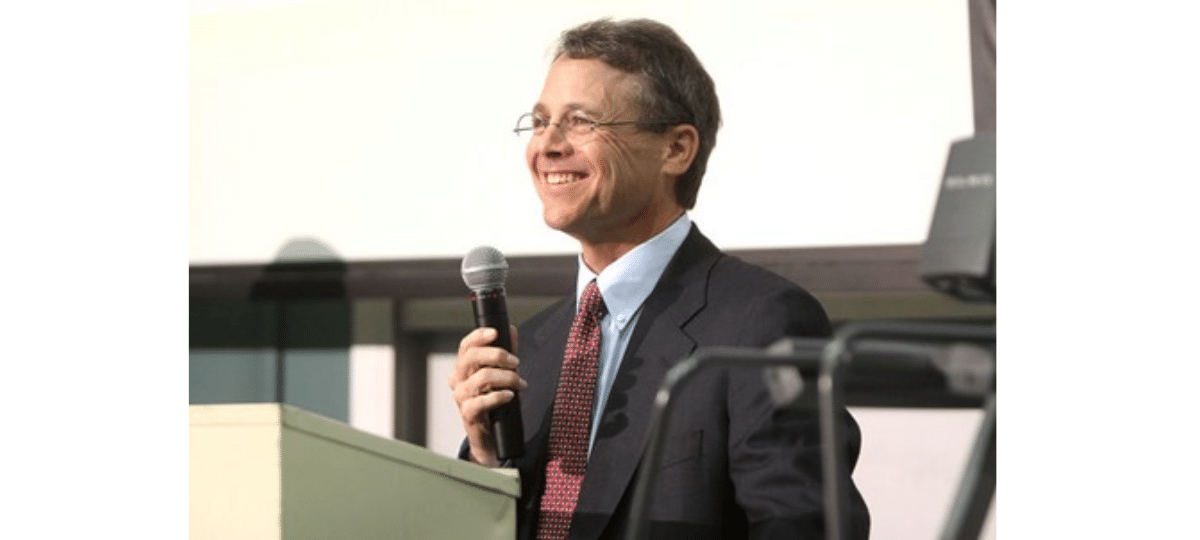At the beginning of March, controversy arose in the Libertarian Party of New York (LPNY) after it was announced that, out of the eight qualified candidates for the 2020 Libertarian presidential nomination, seven of them were being kicked off the ballot. The one candidate who remained: Jacob Hornberger.
While all primaries in the Libertarian Party are, by rule, non-binding when it comes to selecting delegates – the presidential and vice presidential nominees are chosen individually at the national convention by the unbound delegates – the LPNY primary is unique in that the winner gets to select 27 of the state’s 48 allotted delegates to send to the national convention.
And since the removal of seven candidates left just Hornberger on the ballot, and with no option to vote for everybody’s favorite libertarian NOTA, the New York State Board of Elections (NYS BOE) canceled the primary and declared Hornberger the winner by default. This is in compliance with their rules, and something similar happened with the Republican primary.
So now Hornberger gets to choose 27 delegates to send to the national convention, and while they are all technically free to cast their nominating votes for whomever, Cattaraugus County Chair Luke Wenke explained this dilemma by saying “is a presidential campaign really going to pick someone as a delegate who doesn’t like the candidate?”
Not surprisingly, some rumors and conspiracy theories have popped up as a result. Considering that Hornberger has a history of trying to undermine Libertarian presidential candidates, some have speculated that he or someone on his behalf took steps to ensure all the other candidates were kicked off the ballot. Jake Porter, Hornberger’s c ampaign manager, published a statement on his Facebook page:
“People love to start conspiracy theories. The Hornberger campaign did not file any lawsuits, challenges, or paperwork to keep any other candidate off the New York Libertarian Primary ballot. It would be a better use of time to ask the New York Board of Elections or the campaigns themselves why their filings were rejected.”
Well, I took his advice and reached out to as many people as I could, including Porter himself. What follows is the most accurate summary of what exactly went down with the LPNY primary.
According to the NYS BOE website, they have explicit rules laid out for Democratic candidates and a different set of rules for Republican candidates. In the form, which you can read in full here, candidates for any other party “may either nominate delegates to a national convention pursuant to either the Republican Plan or the Democratic Plan.” Apparently, the LPNY chose to follow the Republican plan. That plan dictates that candidates can qualify for the ballot in one of three ways: 1) by being certified as eligible for matching funds; 2) being a nationally known and recognized candidate, as determined by the NYS BOE; or 3) collecting signatures equal to 5% of all registered Libertarians in New York.
As far as I was able to discern, each candidate submitted their request for ballot access under the claim that they were a nationally known and recognized candidate. According to Wenke, “Many of these candidates really aren’t ‘nationally known’ quite frankly but the Board of Elections originally let that slide for many of these campaigns and sent them all letters saying they were accepted onto the ballot.”
Andrew Kolstee, Chautauqua County Chair, clarified that five candidates – Hornberger, Ken Armstrong, Vermin Supreme, Lincoln Chafee, and Dan “Taxation is Theft” Behrman – had also collected signatures, but that only Hornberger, Armstrong, and Supreme actually submitted those signatures. Armstrong said as much in this statement he provided:
“We were initially approved for ballot access based on valid petition, filed with New York State Board of Elections. Subsequently, our slate of delegates was due on Feb 25. The statute says it must be placed mail and postmarked by the due date. We complied, mailing it overnight from Oklahoma (Where I was on the campaign trail). It was received on Feb 26 but subsequently ruled to have been received late.”
This seems to corroborate what Wenke later told me, as he said “two days before filing deadlines, everyone across the state party starts panicking about getting delegate lists together for each candidate since it was apparently required and nobody knew.”
Additionally, Behrman, said “it looks like candidates who did not file a list of delegates were rejected from the ballot, even though that condition was not stipulated in the rules we were given.” He added, “This is just another example of the two party duopoly restricting Americans’ access to choice.”
For the record, the NYS BOE site’s requirements for ballot access state that “a presidential candidate must file a complete slate of delegates with the State Board of Elections” by February 25, 2020. According to the NYS BOE’s public filing records, the only candidate who did not file on or prior to February 25 was Hornberger, whose paperwork was reported to have been filed a day late.
I asked Porter about this discrepancy, and while he’s had no formal discussions with other candidates or campaigns about this issue, he said that the Hornberger campaign had filed on time, but that the paperwork may not have been processed until February 26th. While he couldn’t recall the exact date the paperwork was submitted, Porter said “It was delivered on the 24th or 25th.”
The most troublesome part in all of this is that the NYS BOE requirements states that if any candidate’s submitted slate of delegates “is not complete or is not otherwise in compliance, it shall notify the candidate of any defects and provide such candidate with no less than three business days to cure any defects.” Yet, according to the accounts of both Wenke and Armstrong, that did not happen, which would constitute an illegal operation on the part of the NYS BOE.
Armstrong apparently agrees, as he filed an injunction that would require the NYS BOE to put his name back on the ballot. If that injunction had been granted, the primary would have been reopened and the ballot would include just Hornberger and Armstrong. However, after the injunction was heard on March 16, the Albany Supreme Court ruled on March 30 that Armstrong would not be added to the ballot.
Armstrong notes that he and his campaign worked to provide many of his fellow campaigns with information on qualifying for the ballot in the hopes of getting as many Libertarian candidates on the ballot as possible. Unfortunately that was not the case, and Armstrong decided not to appeal the Albany Supreme Court’s decision after the state of New York postponed all primaries until June 23 due to the coronavirus; since that date is a month after the national convention, it ultimately becomes a moot point in the event Armstrong did win an appeal.
As for the rumors of the Hornberger campaign rigging the primary, there seems to be no concrete evidence to support that. When I asked Porter about it, he had this to say:
“We know of no one who attempted to get any candidate kicked off the ballot. We didn’t ask, request, hint, or instruct anyone in any way to attempt to get any candidate removed from the ballot. Additionally, we did not personally ask to get anyone removed from the ballot.”
Additionally, he added that “If the campaigns have concerns they need to contact the NY Board of Elections. This is politics 101 and if they have contacted the NY Board of Elections and the state of New York isn’t giving them an answer, that is another issue.”
However, an anonymous source with intimate knowledge of LPNY operations described a culture wherein many executive members of both the state party and various county affiliates were supportive of Hornberger’s campaign and provided special assistance to his campaign that others were not afforded. For example, Porter described a member of the LPNY giving the Hornberger campaign a rulebook for the primary that explained some of the finer points about achieving ballot access. By contrast, none of the other campaigns I spoke with received anything like that, with one campaign even saying they had asked for something of the sort and were told it didn’t exist.
Additionally, the anonymous source described a contingency of Libertarians in the Long Island area who reportedly sought to simultaneously support the Hornberger campaign while also damaging the campaign of Vermin Supreme. Based on the statewide primaries that have been held, Hornberger and Supreme have consistently been the two most frequent vote-getters, and while these primaries aren’t a surefire indicator of how delegates will vote at the national convention, it seems that these two are the top contenders at the moment.
When I asked Kolstee about these rumors, he was unaware of any Long Island contingency, but he did confirm a sense of bias against the Supreme campaign by some in the LPNY, saying that there were “some people in state leadership that were just not on board with Vermin Supreme.” Kolstee even said that there were debates among party officials over whether or not to hold a primary in the first place over the concern that Supreme might win.
According to the anonymous source, this Long Island-based group worked with members of the LPNY to ensure that Hornberger and Hornberger alone received the necessary information to successfully make the ballot. The source was unsure if the Hornberger campaign was aware of this operation. I reached out to the chair of the LPNY to ask about this, but I received no response.
So, in conclusion, there’s no evidence to support the theory that Hornberger rigged the New York Libertarian primary, and his campaign is adamant that they did not take any actions, nor ask anyone else to take actions, to do so. However, the facts paint a puzzling portrait:
– Hornberger’s filings with the NYS BOE were later than anyone else’s, yet he remains on the ballot;
– Hornberger’s campaign was apparently the only one that was given the rulebook by the LPNY;
– and none of the candidates whose filings were deemed to be incomplete were given the legally required three business days to correct it.
We may never know the full, true story about what happened in the 2020 New York Libertarian primary. Kolstee emphasizes that this was the LPNY’s first ever primary, explaining that “It was our first time doing it, and it was like we were learning as we were going.”
While Kolstee chalks it up to a learning experience, the seven candidates who got booted are left with more questions than answers. Regardless, the fact remains that Hornberger is the first Libertarian candidate to ever win the New York Libertarian primary.





27 comments
casinos
ocean casino online
hollywood casino online
online casino usa real money
generic viagra online
viagra online prescription
parx casino online
casino online games for real money
live casino slots online
casino moons online casino
generic cialis tadalafil 20 mg from india
tadalafil canadian pharmacy
loan online
personal loans
loan online
online loans
no credit check loans
cash loan
viagra pills
viagra 100mg
generic for cialis
5 mg cialis
cialis 5 mg
cialis internet
cialis buy
cialis internet
cialis 5 mg
20 cialis
cialis to buy
5 mg cialis
online casino real money usa
casinos online
online casino
casino gambling
slot machine
casino real money
doubleu casino
casino online games
viagra without doctor
sildenafil 100
buy cheap viagra
viagra generic
generic viagra reviews
generic viagra online
buy tadalafil online
tadalafil online canadian pharmacy
buy cialis online cheap
cialis online reviews
online casino real money
play casino
real online casino
online casino usa
Overnight canadian viagra
Low cost canadian viagra